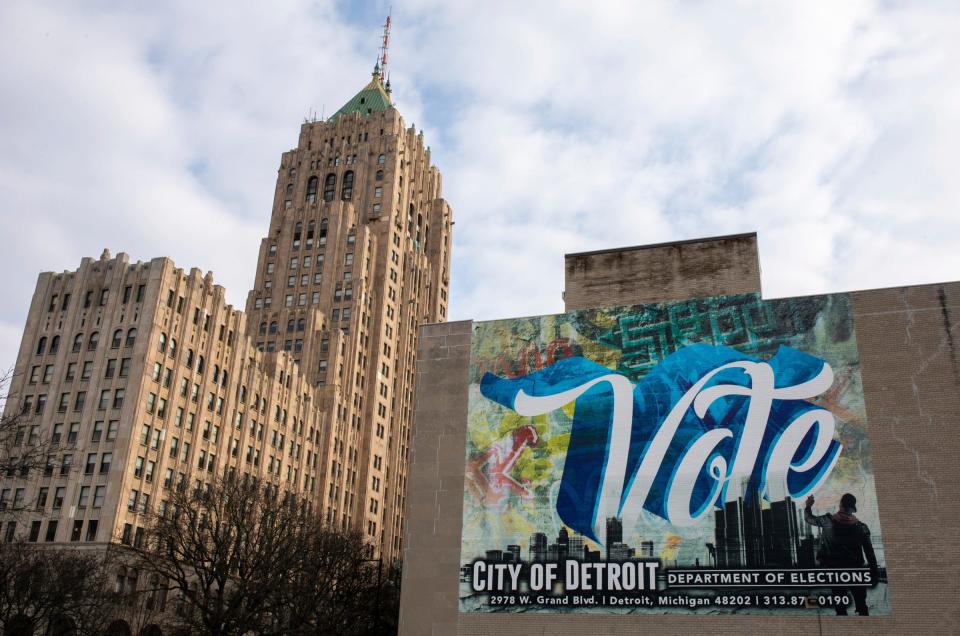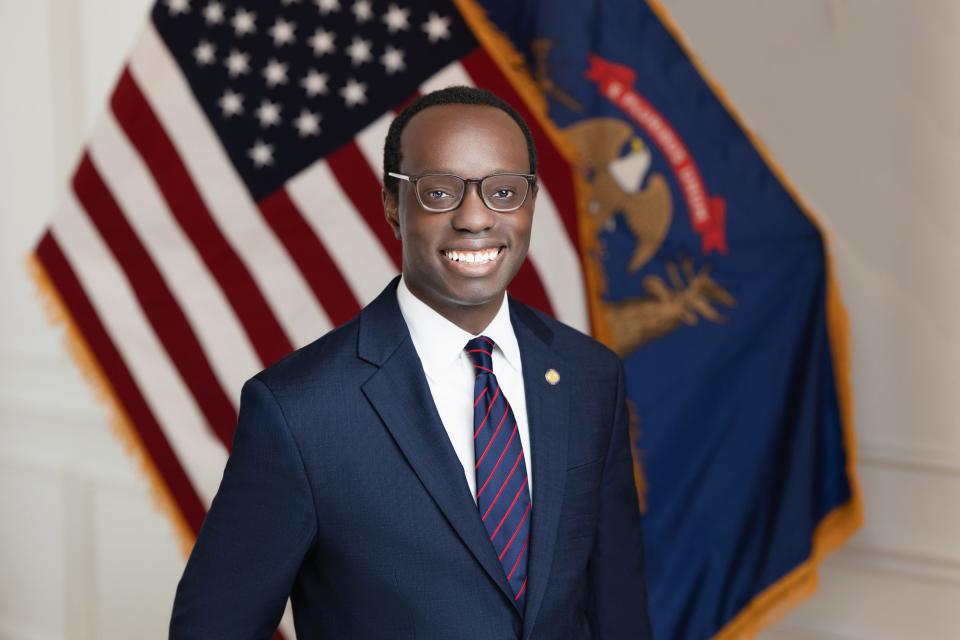Expanding absentee voting wasn't enough. Michiganders can vote early in-person | Opinion
During the 2020 presidential election, I thought everyone I knew would vote by mail. After all, Michigan voters had recently made absentee voting available to all, and voting from home was the safest way to avoid COVID-19.
To my surprise, some of my friends decided to vote in-person on Election Day. Their reasons ran the gamut from confusion about how to request an absentee ballot to simply wanting an “I Voted” sticker. Local clerks told me that some voters, after waiting in line to vote early but in person with an absentee ballot, actually left when they realized they could not put their own ballots into the tabulators, because absentee ballots can’t be processed before Election Day.
I'd spent the previous 10 years as an election volunteer, voting rights advocate and election attorney, but I came away from these conversations with a fresh perspective, convinced that we needed to explore new ways to make in-person voting more accessible. The strength of our democracy relies on citizen participation in the electoral process. If people do not vote, their elected representatives have a weak mandate to govern.

And that means we must make it easy for people to vote. While we should acknowledge that 60% of the electorate voted absentee in 2020, it would have been wrong to ignore the 40% who did not. I knew it was imperative that we push to expand in-person voting options in Michigan if we are to achieve the ideal of every voter being able to make their voice heard.
Safe, early, in-person voting
In May 2021, as state director for the voting rights group All Voting is Local, I released a set of voting reform proposals with an emphasis on in-person early voting. The initial reaction was mixed. Former Secretary of State Ruth Johnson questioned whether I really thought early voting could work within our decentralized system of over 1,500 clerks. Local officials were concerned about the burden on their budgets. After a stressful 2020 election cycle, many clerks were wary of more changes.
Letters to the Editor: Feds must do more to protect whistleblowers from retaliation
Undaunted, a coalition worked to place an early voting proposal on the ballot, and the voters responded by passing Proposal 2 with 60% of the vote in November 2022. Now, nine days of early voting — with two full weekends — are enshrined in our state constitution. Michiganders can vote early, and can put their ballots into a tabulator with their own hands.
A few months later, Secretary Jocelyn Benson appointed me Deputy Secretary of State, and I began working with her and the entire Department of State team to turn the concept of early voting into reality.
The first thing we needed to do was ensure early voting was both secure and flexible enough to work in the many different and unique communities across Michigan. Some clerks wanted to have a single early voting site for their entire town, while others wanted to partner with neighboring clerks and have multiple joint early vote sites.
Ultimately, we developed an electronic pollbook that contains the names of all registered, eligible voters. This pollbook updates in real time to ensure that once a voter casts their ballot, they cannot go to another early voting site and vote there. This list is always up to date. But before poll workers can access this data, they must go through layers of security to operate the tool, including using a physical, multi-factor authentication device and a coded grid card.
More election funding for local clerks
To keep costs for local governments down, Benson directed our team to make a full court press to ask the Legislature to allocate funds for local clerks. This was no easy task, as it had been nearly 30 years since the Legislature had increased local election funding without prodding from the federal government. Clerks and voting rights advocates backed our call. In one critical three-day period, the secretary and I personally met with 15 legislators, leading to a successful appropriation of $30 million. Local clerks have used this money to purchase new equipment, security upgrades and fund poll worker salaries.
A TikTok ban could cost Joe Biden the 2024 election | Letters to the Editor
Clerks across the entire state have worked tirelessly to implement early voting. I am especially grateful for the 12 clerks, particularly Oakland County Clerk Lisa Brown and Lansing City Clerk Chris Swope, who worked with us to pilot early voting during the November 2023 local elections. The pilot provided us with invaluable feedback and strong momentum going into this election year. Working together, we made early voting a reality for over 78,000 Michiganders casting ballots in February’s presidential primary.
We now know the system works, but we still have work to do. We need to make sure every Michigan voter knows about this new option. We will work across multiple channels to reach voters in every corner of this state. But we cannot do this alone. We need your help. Please visit Michigan.gov/EarlyVoting to learn about your new voting rights, and tell everyone you know they can do the same. Together, we can ensure our democracy remains strong this November.

Aghogho Edevbie is Michigan's Deputy Secretary of State.
This article originally appeared on Detroit Free Press: Michigan early voting helps voters feel elections are safe, secure

